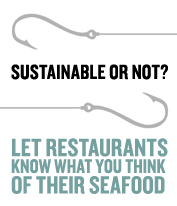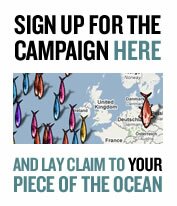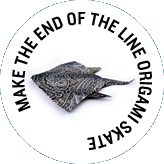World leaders and organisations speak out on overfishing
"Once considered inexhaustible, our oceans are now in a state of global crisis as more and more people compete for fewer and fewer fish. Overfishing threatens coastal communities and the food security of the millions who rely on marine fish as an important source of protein. Yet the solutions are in our hands, because what we buy for dinner tonight can determine whether tomorrow's generations will continue to enjoy the oceans' riches. Or not." WWF, the global conservation organisation
"The vibrant beauty of the oceans is a blessing to our country. And it’s a blessing to the world. The oceans contain countless treasures. They carry much of our trade; they provide food and recreation for billions of people. We have a responsibility, a solemn responsibility, to be good stewards of the oceans and the creatures who inhabit them." President George W Bush
"We know that when we protect our oceans, we’re protecting our future." President Bill Clinton
Prince Charles, who is president of the MCS, said it was a "wake-up call" that British seas were in need of urgent help. "There is simply nowhere in Britain's seas where marine life is effectively protected from human impacts," he said. "Never has it been so important to take immediate action to protect marine life." HRH Prince Charles, President, Marine Conservation Society
"The need for nations to agree on urgent action has never been more acute. Measures introduced over the next few years will determine what the future will hold in terms of food security, species survival and the ocean’s ability to withstand climate change, and those measures have to include a robust network of marine protected areas, in national and international waters." Carl Gustaf Lundin, Head of the IUCN Global Marine Programme, United Nations General Assembly, World Conservation Union
"After climate change, commercial fishing represents the greatest threat to life in our oceans. As well as ruthlessly fishing out stock after stock, the way we fish has disastrous consequences for other species and entire ecosystems – but the damage being done is out at sea, out of sight, and out of mind for most people. We need to take drastic action to repair the damage we’ve done to our oceans before it’s too late." Willie Mackenzie, Oceans Campaign, Greenpeace United Kingdom
"Overfishing cannot continue." Nitin Desai, Secretary General of the 2002 World Summit on Sustainable Development
''We've acted as if the supply of fish was limitless and it's not." Steve Trent, Executive Director, Environmental Justice Foundation
''As Europe has sought to manage its fisheries and to limit its fishing, what we've done is to export the overfishing problem elsewhere, particularly to Africa." Steve Trent, Executive Director, Evironmental Justice Foundation
''The sea is being emptied." Moctar Ba, Scientific Consultant, Mauritania and West Africa
"Can the sea really let us eat sushi in these numbers?" Caroline Bennett, Founder, Moshi Moshi sushi chain
"This project allows us to finally start to see the big picture of how humans are affecting the oceans. Our results show that when these and other individual impacts are summed up, the big picture looks much worse than I imagine most people expected. It was certainly a surprise to me." Ben Halpern, US National Centre for Ecological Analysis and Synthesis (NCEAS)
"It is true that fishermen feel an almost desperate need to catch as many fish as they can when they're allowed to. That sense of desperation ... can't be an excuse for the policymakers of the world and this country to allow that to cause the universal collapse of fisheries." James Greenwood, former US Congressman
"Never before have Mediterranean countries had more reason or opportunity to safeguard the region's beleaguered sharks and rays. Officials should heed the dire warnings of this report and act to protect threatened sharks and rays through regional fisheries agreements, international wildlife conventions, and national legislation. Such action is necessary to change the current course toward extinction of these remarkable animals." Sonja Fordham, deputy chairman of the SSG and policy director for the Shark Alliance
"An estimated 40 percent of cod caught in the Baltic Sea are illegal." Mireille Thom, spokeswoman for Joe Borg, European Union Commissioner of Fisheries and Maritime Affairs





